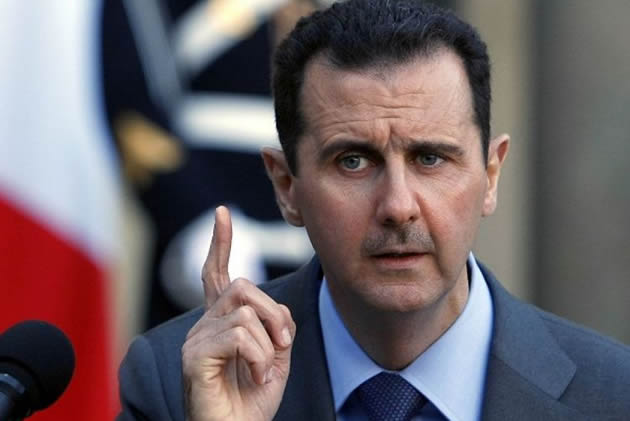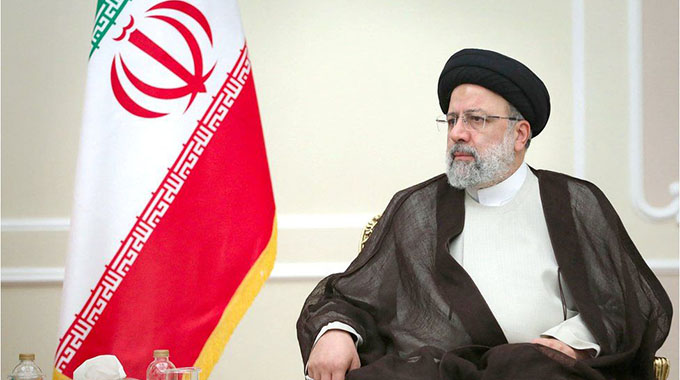Boris Johnson signals shift in UK policy on Assad


Bashar al-Assad
LONDON. — The UK accepts that Bashar al-Assad should be allowed to run for re-election in the event of a peace settlement in Syria, Boris Johnson has said, in a dramatic reversal of the British policy stretching back to the early days of the civil war that the president must go.Speaking on the eve of Theresa May’s meeting with Donald Trump in Washington, the UK’s foreign secretary acknowledged that the inauguration of the new US president meant all sides needed to rethink their approach to Syria.
“It is our view that Bashar al-Assad should go, it’s been our long-standing position. But we are open-minded about how that happens and the time-scale on which that happens,” Johnson told the Lords international relations select committee.
“I have to be realistic about how the landscape has changed and it may be that we will have to think afresh about how we handle this. The old policy, I am afraid to say, does not command much confidence.”
The official Foreign Office view has long been that Assad can stay only for a short period as part of a transitional government.
In the days after he was appointed as foreign secretary in July last year, Johnson insisted that Assad had to go.
But the defeat of the rebel opposition in Aleppo, Trump’s determination to rebuild relations with Russia and the Turkish rapprochement with Moscow has changed the equation.
“We have been wedded for a long time to the mantra that Assad must go and we have not been able at any stage to make that happen and that has produced the difficulty we now face,” Johnson said.
“We are getting to the stage where some sort of democratic resolution has got to be introduced . . . We believe in democracy, we support democracy, and if there is a political solution then I don’t think we can really avoid such a democratic event. I think that is the way forward.”
Johnson said it was crucial that the Trump administration recognised that any deal with Russia on ending the Syrian conflict would also involve accommodating Iran, another key Assad ally.
“The real question is whether the incoming American administration fully appreciates that relationship, and how we can shape the conversation,” Johnson said.
“Clearly, what we do not want to see is a further extension of Iranian policy and influence in the region.”
Johnson also held out the conditional prospect of the UK working with Russia militarily to defeat Islamic State — something that would have been unthinkable only weeks ago.
“If there is a possibility of an arrangement with the Russians that simultaneously allows Assad to move towards the exit and diminishes Iranian influence in the region by getting rid of Assad, and allows us to join with the Russians in attacking Daesh (ISIS) and wiping them off the face of the earth, then that might be a way forward,” he said.
The UK has been one of Russia’s strongest critics but, in a change of tone — if not policy — that reflects the new mood in the White House, Johnson said Moscow had to be engaged.
“We cannot endlessly push them away and demonise them,” he said.
“We need to understand exactly where the White House is coming from. We need to understand how they see the endgame here and we need to help shape that conversation and some of the reservations we have, particularly about Iran.”
Johnson also pledged that May would spell out the importance of Nato “in capital letters” to Trump and predicted she would persuade him and the US Congress to stick with the Iranian nuclear deal.
The UK is walking a delicate tightrope as it seeks to stay close to its greatest foreign policy partner at a time of policy flux, while attempting to uphold long-standing foreign and human rights policies.
In another first in front of the Lords yesterday, the foreign secretary said the UK was only “narrowly” on the right side of the law by granting exports licences for arms to be sold to Saudi Arabia.
The Saudi-led coalition campaign in Yemen’s civil war has been dogged by allegations of indiscriminate bombing.
“We have received sufficient assurances from the Saudis about the incidents that have taken place so far to think that we are on the right side — narrowly on the right side — of that threshold,” Johnson said. — The Guardian.










Comments